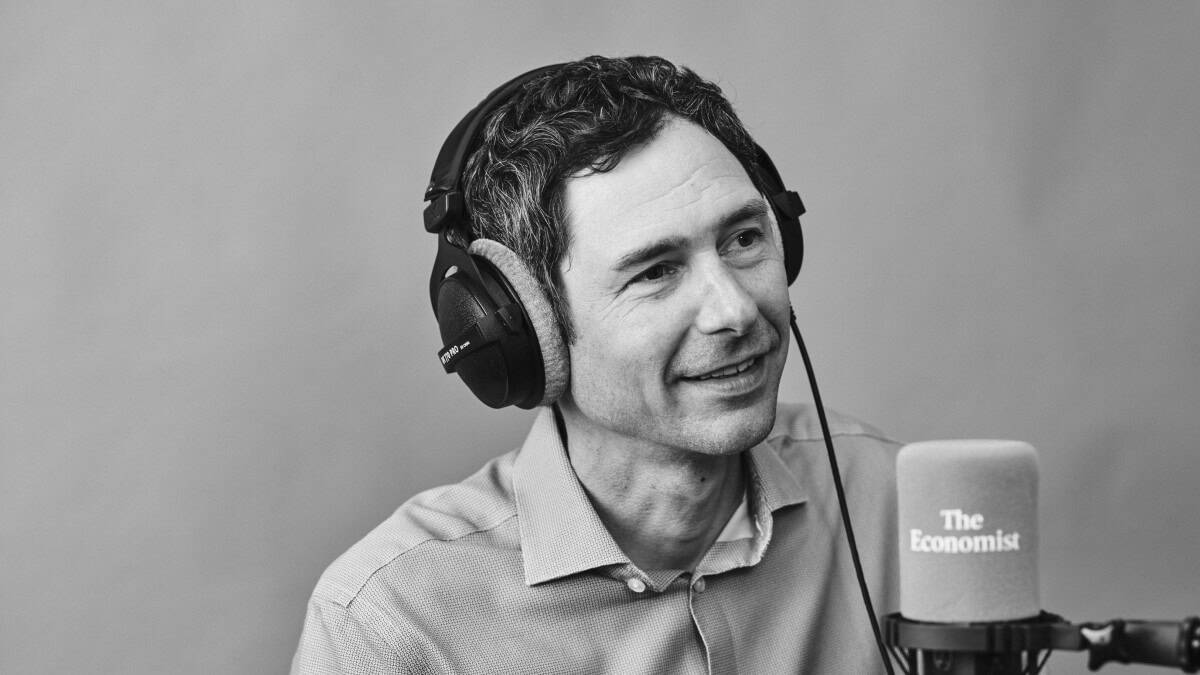Science
Physicist Jason Palmer Transitions from Lab to Journalism at The Economist

In a recent episode of the Physics World Weekly podcast, journalist Jason Palmer discussed his unique career transition from a physicist in the laboratory to a prominent science journalist at The Economist. Palmer, who completed a PhD in chemical physics at Imperial College London, shared insights into his journey and offered advice for scientists considering similar career paths.
From Laboratory to Newsroom
Palmer’s career began in science, where he immersed himself in research. After earning his doctorate, he took his first steps into journalism, with roles at the BBC and New Scientist. This experience allowed him to blend his scientific expertise with storytelling, a combination that has proven invaluable in his current role.
During the podcast, Palmer reflected on the challenges and rewards of transitioning from a structured environment in the lab to the fast-paced world of news reporting. He emphasized the importance of communication skills in journalism, stating that the ability to convey complex scientific ideas to a broader audience is essential.
Advice for Aspiring Science Writers
For scientists looking to make a similar switch, Palmer provided several practical tips. He encouraged them to start writing about their research and to seek opportunities for publication in science-oriented outlets. Building a portfolio of work can help demonstrate their writing ability and understanding of the subject matter.
Networking is also critical, according to Palmer. Engaging with other science writers and attending conferences can lead to valuable connections and insights into the industry. He highlighted the significance of persistence, noting that many successful journalists faced numerous rejections before finding their niche.
“The transition is challenging, but it can be incredibly rewarding,” Palmer stated, emphasizing the impact journalists can have in bridging the gap between science and the public.
Palmer also discussed the evolving landscape of journalism, particularly the role of artificial intelligence in the field. He noted that AI technologies are changing how journalists gather and analyze information, which can enhance storytelling but also poses ethical questions about accuracy and source verification.
As science and technology continue to advance, the demand for skilled science communicators remains high. Palmer’s journey serves as a reminder of the importance of effective communication in making complex topics accessible to the public.
Through his work at The Economist, Palmer illustrates how science journalism can play a pivotal role in informing and educating society, blending rigorous scientific knowledge with engaging narratives that resonate with diverse audiences.
-

 Entertainment2 months ago
Entertainment2 months agoIconic 90s TV Show House Hits Market for £1.1 Million
-

 Lifestyle4 months ago
Lifestyle4 months agoMilk Bank Urges Mothers to Donate for Premature Babies’ Health
-

 Sports3 months ago
Sports3 months agoAlessia Russo Signs Long-Term Deal with Arsenal Ahead of WSL Season
-

 Lifestyle4 months ago
Lifestyle4 months agoShoppers Flock to Discounted Neck Pillow on Amazon for Travel Comfort
-

 Politics4 months ago
Politics4 months agoMuseums Body Critiques EHRC Proposals on Gender Facilities
-

 Business4 months ago
Business4 months agoTrump Visits Europe: Business, Politics, or Leisure?
-

 Lifestyle4 months ago
Lifestyle4 months agoJapanese Teen Sorato Shimizu Breaks U18 100m Record in 10 Seconds
-

 Politics4 months ago
Politics4 months agoCouple Shares Inspiring Love Story Defying Height Stereotypes
-

 World4 months ago
World4 months agoAnglian Water Raises Concerns Over Proposed AI Data Centre
-

 Sports4 months ago
Sports4 months agoBournemouth Dominates Everton with 3-0 Victory in Premier League Summer Series
-

 World4 months ago
World4 months agoWreckage of Missing Russian Passenger Plane Discovered in Flames
-

 Lifestyle4 months ago
Lifestyle4 months agoShoppers Rave About Roman’s £42 Midi Dress, Calling It ‘Elegant’









